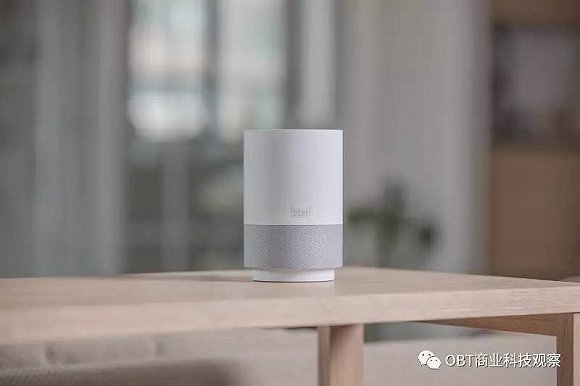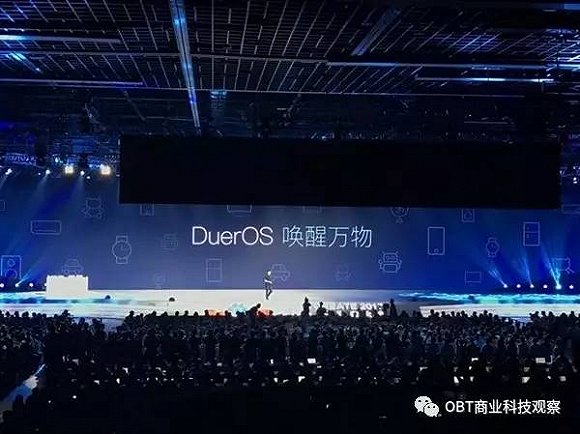Ali releases Smart Speaker "Tmall Elf X1" OFweek smart home network hearing a seemingly inconspicuous speaker equipment, and now it has become the world's Internet giants swarmed into the field. On July 5th, Ali and Baidu also released artificial intelligence based voice interactive products. On the same day, Ali not only released an intelligent voice interactive terminal in Beijing - a 499 yuan smart speaker "Tmall Genie X1" (supports Taobao shopping with voice, voiceprint payment), but also released the first generation of Ali Chinese. Machine communication system AliGenie. Baidu announced the DuerOS voice interactive platform at the AI ​​Developer Conference. Just past May and June, Apple, Microsoft and Samsung, Lenovo Group have also released voice smart speakers, Tencent has released a small micro intelligent voice platform. Jingdong also launched the smart speaker, the å®å’š speaker, as early as 2015, in collaboration with HKUST's Xunfei R&D. Xiaomi also launched the smart speaker in 2016. This smart house boom triggered by the Amazon smart speaker Echo three years ago has so far engulfed North America and China. Why are the global Internet giants betting on "smart speakers"? This is not an ordinary speaker. The voice interaction function and voice interaction platform behind the smart speaker has the opportunity to become a key entry point for the coming trillion artificial intelligence, Internet of Things and smart home boom. According to Baidu, the future voice interactive platform has the opportunity to become the “operating system†of artificial intelligence, Internet of things, and smart homes, connecting the new artificial intelligence, Internet of Things, and smart home industry ecosystem. Therefore, Baidu has positioned the DuerOS as The Android system in the artificial intelligence (AI) era is open to developers and businesses. Why can voice interaction become a key entry point for artificial intelligence, Internet of Things, and smart homes? “From mouse and keyboard in the PC era to touch screen technology in the era of mobile Internet, and to the voice interactive technology in the AI ​​era, every change in human-computer interaction is driving changes in the era. Voice interaction is an important evolution direction of human-computer interaction. In the development of artificial intelligence, it occupies an absolutely important position, said Jing Ye, general manager of Baidu’s Secret Business Unit. This is also inseparable from the rapid development of voice interaction technology and the voice industry. According to public information, the global voice industry has been beginning with the "identification of simple vocabularies and sentences through simple keyword matching to achieve simple command operations" from the 50s to 70s of the 20th century, and by the 1980s, it had achieved a breakthrough in key technologies, namely research of intelligent voice technology. The traditional method based on standard template matching has been turned to the statistical method based on statistical model (HMM), and neural network technology has been introduced into speech recognition, which has made great progress in speech recognition and natural language processing technology. In terms of speech recognition rate, the current platform recognition accuracy rates for Baidu, HKUST, etc. are all above 96%, which provides the possibility for the landing of voice technology. At the beginning of the 21st century, intelligent voice technology came out of laboratories and began industrialization. It quickly entered the application of call centers, home appliances, and automobiles. Now it has formed a fairly mature industry. In particular, with the 2010 Apple Siri release as an important tipping point, smart voice applications have extended from traditional industries to emerging areas such as smart cars, smart homes, and wearable devices. DuerOS Voice Interactive Platform Released at Baidu AI Developer Conference According to public statistics, as of the end of March 2016, as the earliest listed and most market-occupied voice technology company, HKUST has included QQ, Gaode Map, Didi Trip, Ctrip, Dianping, and Sina Weibo. The 130,000 + partners in the company provide voice technology services, covering more than 700 million end-users and 1.5 billion daily online service. The number of domestic smart speaker categories has grown rapidly. In 2016, sales volume increased by 335% year-on-year, and the smart speaker market has already taken shape. This means that voice interaction has become a killer application with a "high share" in the current artificial intelligence and Internet of Things markets, and is expected to become the future traffic portal and basic platform. On the face of it, this is a “card slot battle†around smart speakers. In fact, Internet bigwigs take this into the home scene and cut into the trillions of artificial intelligence (AI) and Internet of Things industries. Internet giants are playing different ways in the smart speaker "card game." After a brief cooperation with Nuance Communications, the world’s largest provider of speech recognition and image processing solutions, Amazon, Google and Apple established their own voice interactive R&D team, which currently provides basic voice interaction platform to sell intelligence. Speaker package solution. Data from eMarketer shows that in the first quarter of this year, the market share of Amazon Echo was 70.6%, and Google Home accounted for 23.8%, while other manufacturers (including Apple, Lenovo, LG, Harmon Kardon) With Mattel, the remaining market share was 5.6%. Since its launch in 2014, the cumulative sales volume of Amazon Echo speakers and two other voice products have approached 1,000 to 11 million units, with sales reaching US$ 8-10 billion. Market research firm Strategy Analytics predicts that by 2022, one-third of North American households will be equipped with smart speakers. Although the technological advantages and strategic layout of the global internet affrontees are more inclined to open up the basic voice interaction platform to the society, the future of the Internet of Things is also an indispensable part of smart devices. Therefore, it is indispensable to get involved in the intelligent hardware industry. It now appears that smart speakers are more like a big guy deploying artificial intelligence, the Internet of Things test products. Supporting more intelligent product manufacturers in the future and driving the rapid development of the smart industry may be the most likely development route for bigwigs. Domestically, BAT is the most powerful independent research and development voice interactive platform. For example, Ali chose the same path as Amazon. He not only independently developed the first generation Chinese human-computer communication system AliGenie, but also launched the smart speaker “Tmall Elf X1â€. Tencent focuses on the research and development of voice interaction platform. BAT's voice interactive platform is open to developers and enterprises. Developers can create skills to provide more voice users with services, and they can also connect their own devices to cloud services to acquire voice interaction capabilities. Unlike BAT's technical reserves, Jingdong, Xiaomi and other players chose to jointly launch related platforms and smart speakers with HKUST. It is worth mentioning that Xiaomi not only jointly developed a voice mobile assistant with HKUST, but also promoted voice interaction technology from mobile phones and speakers to TV remote controls and other smart home devices. With 220 kinds of smart devices on its ecological chain, Xiaomi’s smart home market is uniquely advantageous. Cat 5 Cable Wiring,Cat 5E Ethernet,Shielded Cat5E Cable,Cat5E Outdoor Cable Zhejiang Wanma Tianyi Communication Wire & Cable Co., Ltd. , https://www.zjwmty.com
